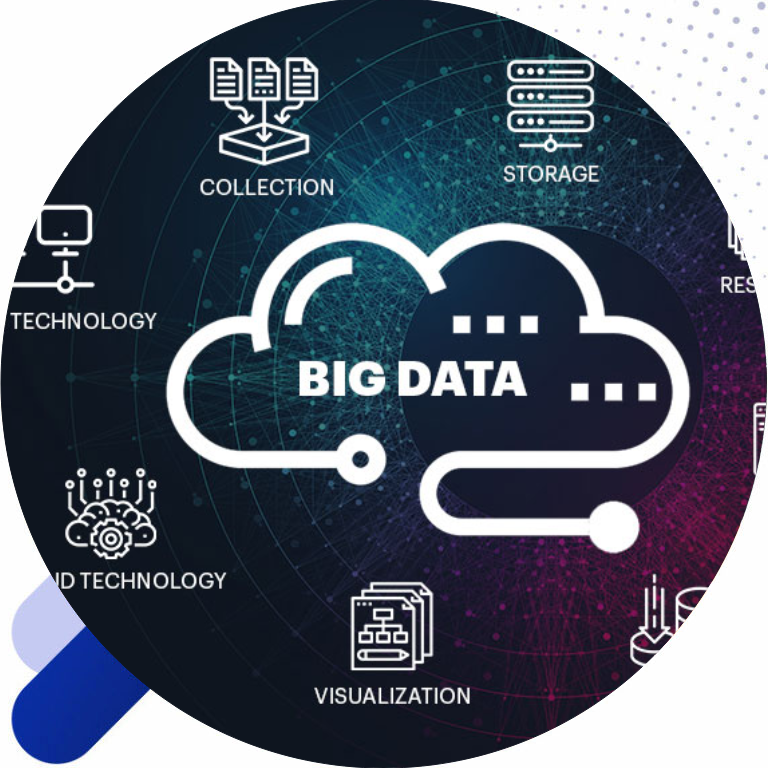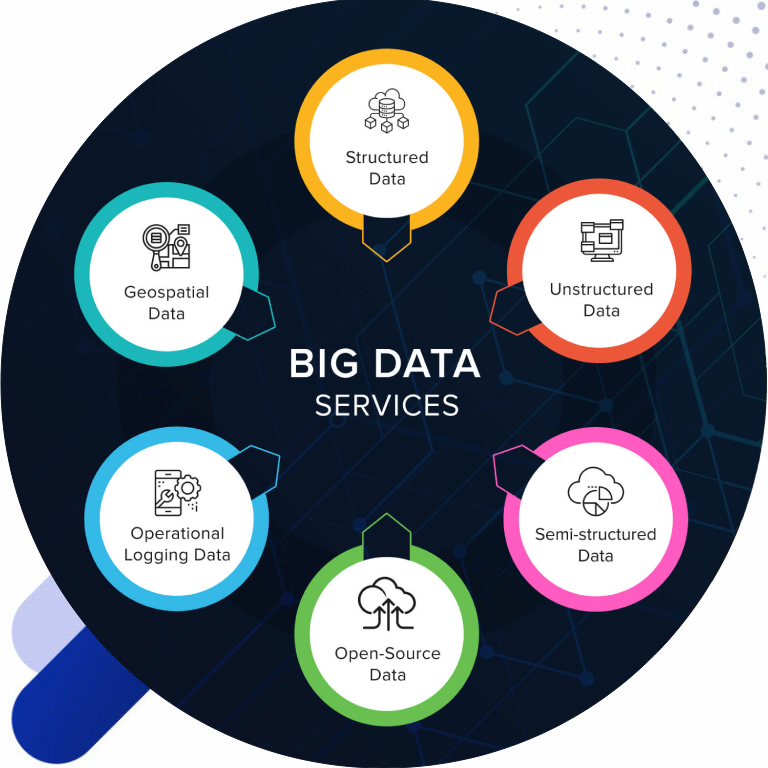Big Data Development: Transforming The Landscape of Decision-Making and Innovation
In an era where data is growing at an unprecedented rate, big data development has emerged as a critical aspect of the digital transformation landscape. Big data development focuses on the design, creation, and implementation of systems that can handle, process, and analyze vast amounts of data. This essay will explore the importance of big data development, the core technologies involved, key methodologies, challenges, and future trends in the field.

Understanding Big Data
Volume refers to the sheer amount of data generated and collected daily. With estimates suggesting that approximately 2.5 quintillion bytes of data are created each day, organizations have to rethink data storage and processing capabilities. Variety highlights the diverse formats and sources of data, ranging from structured databases to unstructured data sources like emails, videos, and social media interactions. This variety enriches the analytical process, but it also complicates data management.
The Big Data Development Lifecycle

The lifecycle of big data development involves several stages, from data acquisition to actionable insights. Understanding this lifecycle is essential for organizations aiming to leverage big data as a strategic asset.
Data Collection and Ingestion
The first stage involves collecting data from diverse sources such as sensors, databases, applications, and external APIs. Data ingestion frameworks and tools—including Apache Kafka, Apache NiFi, and Azure Event Hubs—assist organizations in managing real-time data streams effectively.
Data Storage
Once collected, data storage solutions must accommodate the sheer volume and variety of data. Traditionally, cultures have relied on relational databases; however, the rise of NoSQL databases, data lakes, and cloud storage solutions like Amazon S3, Google Cloud Storage, and Azure Data Lake have transformed the way data is stored. These options facilitate horizontal scaling and support unstructured data formats.
Core Technologies in Big Data Development
Big data development requires a specialized tech stack designed to handle the complexity, volume, variety, and velocity of data. These core technologies include:
Hadoop Ecosystem
Hadoop is the foundation of many big data systems. Its distributed storage (HDFS) and parallel processing (MapReduce) capabilities allow it to handle massive datasets. The Hadoop ecosystem includes tools like Hive (data warehousing), Pig (data flow language), and HBase (non-relational database).
Spark
Apache Spark is a high-performance, in-memory processing engine that excels in big data development. Unlike Hadoop’s MapReduce, Spark performs computations much faster due to its ability to process data in-memory, making it ideal for iterative algorithms and real-time analytics.
NoSQL Databases
Traditional SQL databases struggle with big data, leading to the rise of NoSQL databases such as MongoDB, Cassandra, and Couchbase. These databases provide scalability and flexibility by storing data in a non-relational format, making them suitable for handling unstructured data.
Cloud Platforms
Cloud computing platforms like AWS, Microsoft Azure, and Google Cloud Platform play a significant role in big data development. They offer scalable storage, processing power, and pre-built services (e.g., AWS EMR, Google BigQuery) that make managing big data easier and more cost-effective.
Data Lakes
Data lakes are storage repositories that hold vast amounts of raw data in its native format. Solutions like Amazon S3, Azure Data Lake, and Google Cloud Storage are widely used for building data lakes. Unlike data warehouses, which store structured data, data lakes can store unstructured, semi-structured, and structured data, allowing organizations to scale and experiment with various types of data.
Data Analytics Tools
Once the data is prepared, tools like Apache Kafka, Apache Flink, and various machine learning libraries (e.g., TensorFlow, PyTorch) allow developers to build real-time and predictive analytics applications, providing actionable insights from data.
Methodologies for Big Data Development
Agile Development
Agile methodologies are widely adopted in big data projects. Agile development allows for incremental and iterative progress, with continuous feedback loops. This approach is especially effective in the dynamic field of big data, where requirements may evolve rapidly.
DataOps
DataOps is an emerging practice that applies DevOps principles to data management and analytics. DataOps focuses on automating data pipelines, ensuring collaboration between data engineers, analysts, and developers, and delivering high-quality data at speed.
Microservices Architecture
In big data development, microservices architectures allow teams to build scalable and flexible applications. By breaking down applications into loosely coupled services, developers can focus on individual components that can be scaled independently.
Challenges in Big Data Development
Despite its potential, big data development presents several challenges:
Data Quality and Governance: Ensuring high-quality data is one of the most significant challenges. Poor data quality can lead to inaccurate insights and flawed decision-making. Data governance frameworks are essential to define the ownership, quality, and security of data.
Scalability: While big data tools are designed to scale, managing the infrastructure and keeping costs in check remains a challenge. Scaling systems across distributed environments without compromising performance requires careful planning and architecture.
Security and Privacy: Handling large amounts of sensitive data—such as customer information, financial transactions, and healthcare records—raises concerns around data security and privacy. Developers must implement robust encryption, access controls, and regulatory compliance measures (e.g., GDPR, HIPAA).
Integration with Legacy Systems: Many organizations struggle with integrating big data solutions into their existing IT infrastructure. Legacy systems may not support modern data processing frameworks, leading to potential roadblocks in big data adoption.
Skilled Workforce: There is a global shortage of skilled data engineers, data scientists, and big data developers. As big data tools and technologies evolve rapidly, keeping the workforce up-to-date with the latest skills becomes a continuous challenge.
Speak With Expert Engineers.
Contact us by filling in your details, and we’ll get back to you within 24 hours with more information on our next steps

Please fill out the contact form

Call Us
United Kingdom: +44 20 4574 9617

UK Offices
Business Address: 70 White Lion Street, London, N1 9PP
Registered Address: 251 Gray's Inn Road, London, WC1X 8QT
Schedule Appointment
We here to help you 24/7 with experts

